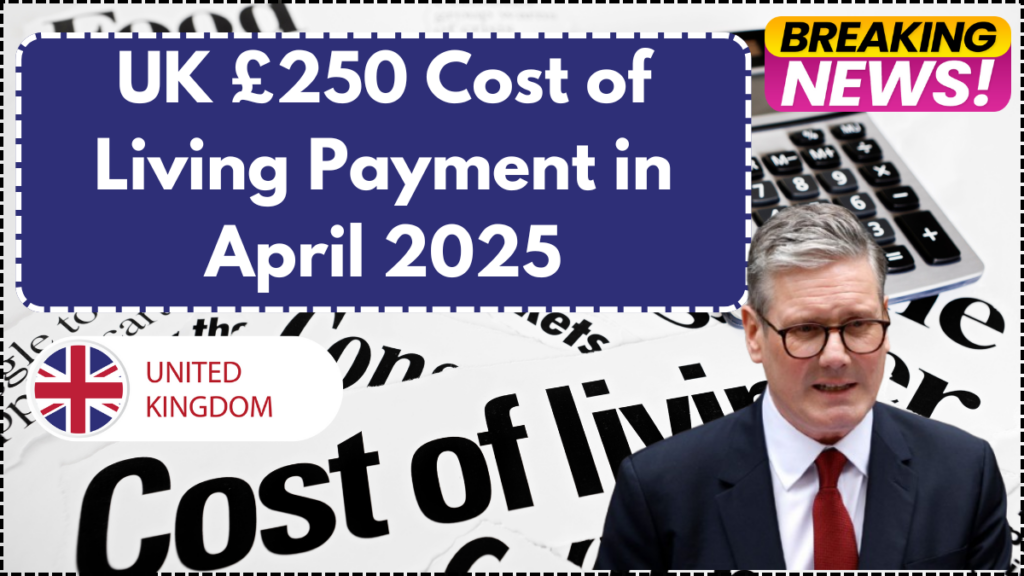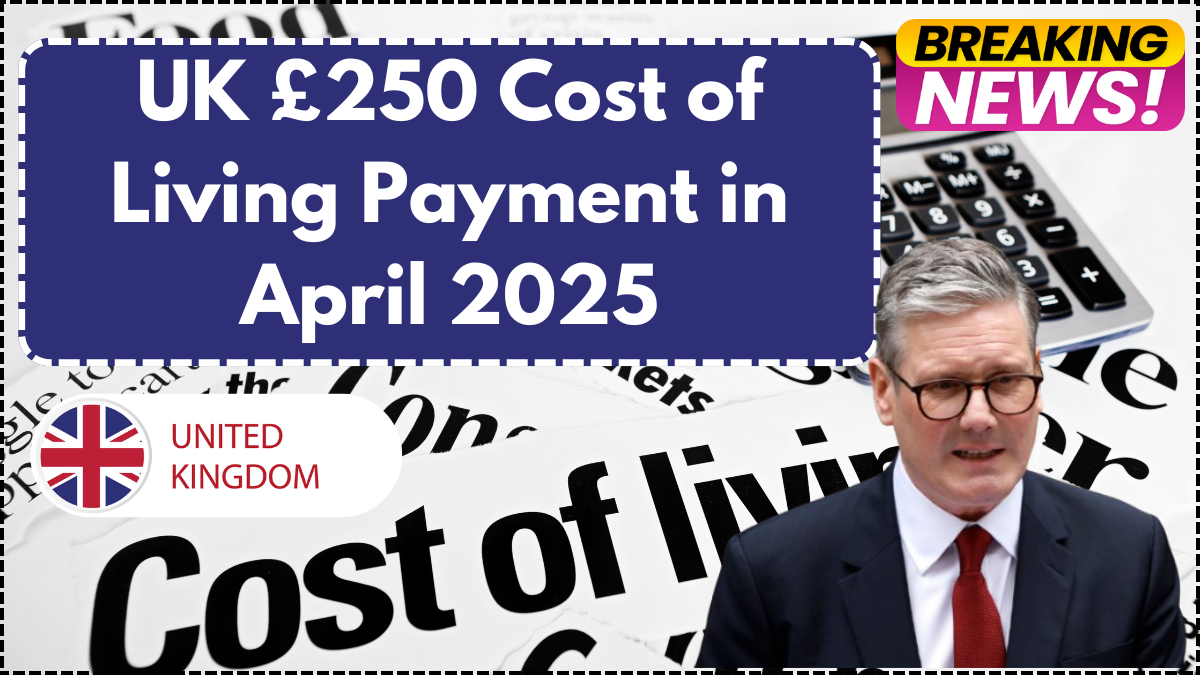The UK government has introduced a one-time £250 financial aid payment to assist households struggling with the rising cost of living. Set to be distributed in April 2025, this initiative aims to provide relief to individuals impacted by inflation, soaring energy bills, and increasing food costs.
This support payment is part of the government’s broader efforts to alleviate financial hardship, ensuring vulnerable groups can manage their essential expenses effectively. Below, we outline the eligibility criteria, distribution methods, and additional support available.

Who Qualifies for the £250 Support Payment?
To ensure the assistance reaches those in need, the government has outlined specific eligibility criteria. The following groups are likely to qualify:
Recipients of Means-Tested Benefits
Individuals receiving benefits designed for low-income households will automatically qualify. These benefits include:
- Universal Credit
- Income Support
- Pension Credit
- Jobseeker’s Allowance (JSA)
- Employment and Support Allowance (ESA)
- Tax Credits (Working Tax Credit or Child Tax Credit)
Pensioners
Those who receive Pension Credit will automatically receive the £250 payment. Additionally, pension-age individuals who are not currently claiming Pension Credit are encouraged to apply, as they may qualify for this and other financial support.
People with Disabilities
Individuals receiving disability-related benefits, including:
- Personal Independence Payment (PIP)
- Attendance Allowance
- Disability Living Allowance (DLA)
Local councils may require additional documentation, such as medical evidence, to verify eligibility.
Low-Income Households
Households that do not receive benefits but have a low income may still qualify. Local councils will evaluate eligibility based on:
- Total household income
- Monthly expenses
- Number of dependents
- Savings, which typically must be below £2,000
How Will the Payment Be Distributed?
The payment distribution process depends on an individual’s current financial status. Below is a breakdown of how the funds will be allocated:
| Payment Method | Eligible Recipients | Action Required |
|---|---|---|
| Automatic Transfer | Benefit recipients | No action needed; payment is automatic |
| Manual Application | Non-benefit recipients in need | Must apply through local council |
For those required to apply manually, the application process typically involves:
- Assessing Financial Status – Reviewing income, expenses, and savings to determine eligibility.
- Locating Local Council – Using the official government website to find contact details.
- Reviewing Application Guidelines – Checking council-specific requirements and procedures.
- Preparing Documents – Collecting proof of income, identification, and recent utility bills.
- Submitting the Application – Completing the application as instructed by the local council.
- Waiting for Approval – Processing times vary, typically ranging from two to six weeks.
Understanding the Household Support Fund
The £250 support payment is part of the Household Support Fund (HSF), an ongoing government initiative to help vulnerable households cover essential costs. The HSF has been extended multiple times, with the latest extension ensuring assistance until March 2026.
Local councils oversee fund distribution, tailoring aid to address regional economic disparities. This localized approach ensures that financial assistance reaches those most in need.
Additional Financial Assistance Programs
In addition to the £250 payment, several other financial support programs are available:
- Winter Fuel Payment – Offers between £250 and £600 to pensioners to help with heating costs.
- Cold Weather Payment – Provides £25 per week when temperatures drop below freezing for at least seven consecutive days.
- Warm Home Discount Scheme – Reduces electricity bills by £150 for eligible low-income households.
- Council Tax Support – Helps reduce council tax payments for individuals facing financial hardship.
- Discretionary Housing Payments (DHP) – Offers extra financial support to individuals receiving Housing Benefit or Universal Credit who are struggling with rent.
Why You Should Act Quickly
Eligible individuals should ensure they receive the £250 payment by checking their eligibility and completing applications promptly if required. Delays in submitting applications or missing documentation could result in processing setbacks, postponing financial relief.
Frequently Asked Questions (FAQs)
1. Do I need to apply if I am already receiving benefits?
No, if you receive means-tested benefits, the payment will be automatically transferred to your account.
2. What if I do not receive benefits but still struggle financially?
You may still qualify based on low income. Contact your local council to check eligibility and apply.
3. When will I receive the payment?
Payments will begin in April 2025, but processing times may vary depending on local council procedures.
4. Can I receive this payment alongside other benefits?
Yes, this payment is separate from other financial assistance programs and does not affect existing benefits.
5. How will I know if my application is approved?
Your local council will notify you via email or letter once your application is processed.
By understanding the eligibility criteria and application process, you can take advantage of the £250 support payment and other available financial aid programs to manage living expenses effectively in 2025.
Click here to learn more
Pari is a passionate writer known for captivating stories that blend imagination and reality. Inspired by travel, history, and everyday moments, Pari crafts narratives that resonate deeply with readers.
